|
Ever wonder how bills get passed and how policy gets changed? While elected officials and public servants hold a lot of power, lobbying firms like Wellington Strategies influence the government, too.
Joe Kuklis, the founder and president of Wellington Strategies, came on the podcast to talk about how his business works and the challenges of building a lobbying firm. Joe focuses on helping small-to-medium sized businesses to navigate the government marketplace in Washington and state capitols. Never miss one of our best episodes by subscribing to the newsletter.
Joe’s Challenge; Look at how federal, state, and local government affects your business and adjust your plan accordingly.
Connect with Joe Website If you liked this interview, check out episode 314 with John Dick where we discuss the next generation of polling, recruiting a team, and how to be empathetic to people with different political viewpoints.
Underwritten by Piper Creative
Piper Creative creates podcasts, vlogs, and videos for companies. Our clients become better storytellers. How? Click here and Learn more. We work with Fortune 500s, medium-sized companies, and entrepreneurs. Sign up for one of Piper’s weekly newsletters. We curate links to Expand your Mind, Fill your Heart, and Grow your Tribe. Follow Piper as we grow YouTube Subscribe on iTunes | Stitcher | Overcast | PodBay
2 Comments
Yummyholic is a custom cookie & cupcake bakery with distinct, made-to-order designs.
Jasmine Cho, the founder, came on Going Deep to discuss her business and how baking can be more creative and therapeutic. She’s learned a lot through launching Yummyholic and you can learn from someone who’s been in the trenches. Jasmine is currently working to pioneer research-based bake therapy by exploring baking as a form of art therapy. Never miss one of our best episodes by subscribing to the newsletter.
Jasmine’s Challenge; Find the thing you are both good at and enjoy doing.
Connect with Jasmine Website If you liked this interview, check out episode 67 with Kit Mueller where we discuss Unstuck, supporting entrepreneurial communities, and his career.
Underwritten by Piper Creative
Piper Creative creates podcasts, vlogs, and videos for companies. Our clients become better storytellers. How? Click here and Learn more. We work with Fortune 500s, medium-sized companies, and entrepreneurs. Sign up for one of Piper’s weekly newsletters. We curate links to Expand your Mind, Fill your Heart, and Grow your Tribe. Follow Piper as we grow YouTube Subscribe on iTunes | Stitcher | Overcast | PodBay
Transcript
Aaron Watson: Thank you so much for doing this. Jasmine Cho: Yeah, absolutely. Thank you for having me. Aaron Watson: So let's actually paint a picture for people. The first time we met was back at Unstuck and I'm going to say that was like three-ish years ago. That was a while ago. Because Unstuck hasn't even been happening for- Jasmine Cho: Right, I miss it a lot actually. Aaron Watson: Me too. I think we need to reboot it. Maybe this will be the genesis for us to get it rebooted. Jasmine Cho: Yeah, maybe. Aaron Watson: So paint a picture for us of where you were at that point in time and a little bit of the evolution that's happened over the last couple of years of the business. Jasmine Cho: Yeah, so I think now I'm coming up on four years since starting Yummyholic as a full time endeavor. I actually created Yummyholic back in 2012, but launched it initially as a foodie apparel business. So I had done all these random t-shirt designs and did it that way because I didn't have any commercial kitchen access or anything at the time to launch food at that time. But when Unstuck was happening, so still very early stages of my business - and it was such a helpful group for me to become a part of, because it was just being able to connect with a lot of other entrepreneurs and other startup stage folks in the area, and I really appreciated how diverse Unstuck, Pittsburgh felt. They were very intentional about creating that type of diverse community too. So, in that way, I think I felt pretty welcome even though I think I still was one of the only Asian American women in the room, but just their intentionality of creating a diverse space is what made me feel really comfortable there. Aaron Watson: That was something Adam always pushed. He was always asking, "please bring someone to bring someone who doesn't look like you from a different background." And that's really part of the advantage, like part of your experience is: you don't have the formal culinary training and yet you make these really cool treats and they are really like beautifully designed. And it's that sensibility of being able to come from a different background and implement it in another space. That's that's a universal. Jasmine Cho: Yeah, I agree. I agree. Aaron Watson: So talk a little bit about that. Talk a little bit about: you always had a passion for baking, but when did you start really sinking your teeth into creating all these different cookies and treats? Jasmine Cho: Okay, so it was around 2015 when I launched full time. But I think I've always loved creating sweet things - or I always loved consuming sweet things - since I was a kid, which is why I created that name, Yummyholic, it was sort of a play on how I was addicted to the pursuit of all things yummy. And then, yeah, I didn't have any formal kitchen experience or culinary education, but I started making YouTube videos actually to start off my creating a portfolio of sorts, of exposing my ability to bake and decorate things. And that is what landed me a job to get some actual, real world experience in a local bakery. And then that confirmed my passions for baking. The only thing was, it was kind of hard to make ends meet, so I had to leave that passion for a little bit until I was in a better financial situation to jump back in, and that was in 2015 around the fall. So I started just doing a bunch of random designs at first that I created, which, well, they were just cute little poop designs and things like that, like silly things. Mexican wrestler designs and just random stuff. But what happened is I had a friend who asked for face cookies and the first face cookies I ever did was actually edible print portraits. So, they weren't actually hand drawn or anything until later another friend caught wind of that and said, "could you actually make my face into a cookie?" And so that slowly became my niche. And I ended up doing a bunch of hand drawn portrait cookies, where I would completely just use Royal Icing to create that. And also some food coloring and use it as water colors to put in all the details. But that became the thing that set my cookies apart from anyone else - probably locally but also I would say I haven't seen a lot of face cookies throughout Instagram so I think I'm still doing something that's kind of unique. But yeah, that's, that's kind of what happened. And yeah, I do tend to specialize in all smaller custom treats, so cake pops or cupcakes. I can do big cakes, but I tend to work with very fine details. So that's sort of my little specialty. Aaron Watson: And are most of the orders that are coming in custom orders, like, "make a picture of my friend Frank's face" or something like that? Jasmine Cho: Yeah. It's always done primarily through email, I would say. I clearly remember the first time I got a cold call or like kind of like the first non-friend customer that I had. Because it all started with word of mouth, through friends and family. And then, Instagram is actually where I started gaining a lot of attention from people I didn't know at all, just complete strangers. And the first customer I had who I had no idea about, I just remember jumping up and down the house. I was so excited. And yeah, so most of them continue to come just directly through email. Yeah. Aaron Watson: And it's for a specific event, like a birthday or a graduation or things like that? Jasmine Cho: Mostly birthdays, some weddings, but I would say actually a lot of the orders I do are for birthdays, yeah. Little special moments like that. Aaron Watson: And that's also interesting that if you look from a historical perspective of the bakery and how it was part of the main street in whatever community. It was, "okay, we're going there fresh in the morning for the cake or the bagel or the treat", and really this transition, in a more macro sense, of the food industry, to delivery. People want their groceries delivered now, they want their dinner delivered. And it's really for the event or for this specific occasion, getting that delivered or picked up. And that's kind of how your business has evolved as well. Jasmine Cho: Yeah, yeah, absolutely. The thing too, that I like - I still have not let go of that dream of having my own brick and mortar space - but the really nice thing about being a complete custom order based business is that there's no waste. I only create what's ordered. So I think it's actually really awesome that I have no waste. Even when I was working at a bakery, when they would do custom cakes and stuff, there's actually a ton of good cake that is just cut off and thrown away. There's trash cans full of wasted cake and wasted everything. But, that's another thing about cookies that I like: I just bake the cookies that are ordered. There's just no waste. So, I really liked that about the business too. Aaron Watson: One of the things that I'm always curious about is: folks like you who get into this for the passion of like, you love the design, you love the baking element - and then you kind of have to marry it to the business sense. In terms of how you've evolved - as it pertains to taking those orders and getting those orders on the business side of things - how have you evolved since 2015 to now? Jasmine Cho: Pricing. Really, that was so hard because becoming an entrepreneur and starting your own business is such a personal journey because you're evaluating your own self worth too. And how much does my product really - what's the true value of it? And you're thinking about your own value a lot too, so that's been I think one of the biggest growth things for me. So knowing how to price my products that's fair to me because when I was first starting out, I was making way below minimum wage. And I'm like, why am I even doing this? And I can't feed myself if I do it this way. So I try to make sure now, especially for the things that take a lot of time - I try to also communicate that to my audience, like I think I had put it up on my website somewhere, going through the actual process. So customers understand like one face cookie can take multiple hours to create. So, I think educating my audience was part of that, but also, then owning up to my own worth and value and being able to price accordingly, was one of my biggest lessons over the time. Aaron Watson: Those are two really interesting elements, right? So, there's the narrative that you tell yourself: "What am I worth? What is my time worth?" - which is its whole own thing to unpack. And then simultaneously, "What do people want? What will people pay for?" And will people pay for something when they know what work has gone into it versus just the box that shows up, right? It's a completely different experience of this commodity that comes in a little box, and I didn't really give any thought to it versus, "Hey, this is me baking all morning long" or "I'm up at 3:00 AM. You're probably looking at this on your Instagram story at seven, whatever, when you woke up. I've been up for four hours baking and sweating" and all that good stuff. Jasmine Cho: Yeah, yeah, that's exactly right. That's exactly right. Yeah. That's definitely how it's been over the years. Aaron Watson: When you started to increase the price, and that element of the self-worth story. What did you do to change - it could be pure necessity, back against a wall, it could have been a mentor who shook you and was like, "come on." Jasmine Cho: Oh, you're absolutely - okay, so I think that's where my brain was trying to go. So, definitely it was just over time, an organic type of process I think. Like, first I'm realizing how much sleep I was losing was one thing, I'm like, "I can't. This is not sustainable double if I do it this way." So that was one realization. And like you said, "a mentor shaking you", there were so many people around me saying "you need to be pricing yourself a lot higher." And, of course from my immediate family, my dad was saying stuff like, "you should be charging like a thousand dollars for a cookie!", which is outlandish, but just having folks around me who really cared and who recognized the talent and the time that went into each product and encouraging me to make the changes accordingly was really helpful. You know, just to get me there a little bit, step by step, to increase my prices accordingly. And then again, for me, also, that whole educating my audience component was really important so that I was being really transparent with everybody and they could understand that too. But it's still a little bit of a struggle. I think there are a lot of times where I try to be as flexible as possible with certain customers who are like, "Oh, I just really love your cookies and I would really like them to be a part of my special occasion." Then I'll try to give them different pricing options based on what's still fair to me, but what might be a little bit of a break for them. Because when I worked in the bakery industry too, I just learned so much about how some people have tons of money. It's like My Super Sweet 16, where they throw tons money at this thing, and that's why these nonprofit partnerships that I've built with organizations like Beverly's birthdays is super important to me, because not everyone can afford to throw that much money around for lavish cakes and desserts and all that. But I think that still makes a very special part of their celebration. So I try to still be as accommodating as possible, especially to folks who are in need. Aaron Watson: Certainly. And people will be attracted to entrepreneurship for multiple reasons, and it could even be part of the personal narrative that you may struggle with, of having different prices for different people, but if it's the large corporate client and they're buying in bulk and they have whatever set aside in the budget, it's like, "okay, this fits into the paradigm that you've created." And as the business owner, as the person who's making the choices, this is someone that I want to work with. I can give them the discounted price and it's my sovereignty, my autonomy that's making that choice, not some sort of like two sided or two face nature to the way you do business. Jasmine Cho: Exactly. Exactly. So everything feels like it's being more aligned to what feels right internally, with what's been happening with my business, so it's felt good. Aaron Watson: So Beverly's isn't the only organization that you work with from a social awareness standpoint. Can you talk about some of the other things that you tie in to Yummyholic? Jasmine Cho: I try to prioritize my charitable giving to Beverly's Birthdays and also the Women's Center & Shelter of Greater Pittsburgh, which serves as a shelter for victims of domestic violence and their children. And so, they actually are one of the agency partners of Beverly's Birthdays. And so they reached out to me several years back and said that they had just lost a volunteer who would regularly bake cakes for that the children who are in their shelter. So I said, "I would love to just step in and fill that need." So I bake for them very regularly as well. Those are my, I would say my two primary nonprofit partners, but I donate everywhere. I tend to still want to give. It's something that I'm doing good at any way, so I try to do a lot of the charitable giving to different organizations that I care about. Most recently it was for APALA Pittsburgh, which is the Asian Pacific American Labor Alliance. The Pittsburgh chapter just launched and they had this huge celebration for Asian Pacific American heritage month, which is this month of May. So, I donated a bunch of treats for their event as well. And, like a couple years back, QED did a whole Christmas cookie special and they showed how I had done this whole thing where I baked like 1,000 treats for all the fire stations in the city. So I like to give when I can and give a lot, yeah. Aaron Watson: Yeah. And talk about the bake therapy side too. Jasmine Cho: Oh yeah! Yeah, so again, I think baking is all about spreading smiles, but also there's a real healing aspect to it, which I think I learned as I was doing the business. So, like you said, part of it is pursuing my passions, but the other part is what stressed me out a bit more: the business aspect of it. So, yeah, trying to manage the stressors of actually maintaining a small business operation, I found that my energies were always renewed in the kitchen, the actual baking work of it and the decorating work. I was just able to zone out and just kind of like pause my stress for a little bit and heal in that way. So that's what started making me think about a long-term vision of what I wanted to do. You know, I love giving away baked goods and all of that, but I just always questioned: "Is there a greater impact that I can make for the community?" And so I thought about: "Is there anything called bake therapy out there?" When I did a little bit of research, the only thing I could find was art therapy and creative, expressive therapies, which uses drama and music and storytelling, I think. So, what I ended up doing is, "okay, let me see if I can maybe connect art therapy with baking and create a bake therapy program in that kind of way." And so, that led me to want to go back to school, and now I'm at Carlow University. I never thought I would finish college, but I'm finally doing it. And, I'm getting my bachelor's now in art therapy and hope to continue on. And I got a grant from the university to actually research baking as therapy over the summer, which I'm super excited about, so I'm like working on that too right now. Aaron Watson: Busy, busy. It's really interesting to me. We did an interview with Dr. Gina Marchando of DreamLife Recovery, and they opened a it's a drug and rehabilitation center out, I think it's in Donegal - I hope I'm saying that correctly - but, one of the things that they're exploring is equestrian therapy and all these different therapies where you're getting in touch with these universal elements, or timeless skills that were almost a given a couple of centuries ago, but as we've undergone this industrial revolution, now digital revolution, we're kind of becoming divorced that those old skills. Jasmine Cho: Yeah, absolutely, yeah. That's why I think it's so important. I think you said timeless skills, what I think of like art and, and equestrian therapy, I think, is essentially reconnecting with nature. So I think it's actually all things that are very intuitive for us as humans for creative expression and just creative fulfillment. So I think art, baking, even yoga, anything that connects us with our body, our minds, and our spirits are all things that were probably a lot more intuitive before we had all these technological distractions, and all of that. So the thing about bake therapy too - or any kind of official therapy element that can be introduced and connected to whatever these activities are - is that I think it could create more access. If there's more research backing all these activities, proving how therapeutic they actually can be, especially when it comes to trauma or things like that. I think that that can increase the chances of funding and just creating more accessibility for people to access it. Aaron Watson: Certainly. And when I think about it too, it's like, being able to point to something and say, "I made that", or "I did that", like "I got up on that horse", that is a huge mental breakthrough. :"I made that cake painted that thing", that sense of like physical accomplishment of a thing, as opposed to - this is reductive, like we're going back to office space - but, "Oh, I pushed some paper today" or "I moved some cells around in the Excel spreadsheet" versus the physical manifestation of your accomplishment. That's what we're built to want to accomplish and achieve. Jasmine Cho: Yeah. I think it's fulfilling in that way. And also, again, to bring it back to baking, I always thought one of the joys for me, when it comes to baking is not just eating it myself, but giving it away. So I think that actually gives that social component that's also missing from a lot of people's lives. I think we can tend to get, this becomes our world - the cell phone or the tablet or whatever. And so when we bake something we're proud of what we made, but I think there's also this urge to want to share it with the people that we care about. So I think that's another component that baking therapy could possibly fulfill. Aaron Watson: Certainly. So this is a very selfish question now. I'm excellent at eating cookies. I'm not so good at making them. In terms of, from a bake therapy standpoint, something that's easily accessible - someone with no experience, where they can get started. But they don't want to just go to the store and pick up the pre-made thing. It's like, "okay put it on a pan. Okay. Put in", like one step beyond that. Where do you usually recommend to start people? Jasmine Cho: Again, I think the way that I'm going to be starting this research is within a group, and I'm walking through them, baking cookies from scratch. So I think it helps when you take a class or something like that, where somebody who knows what they're doing actually shows you step by step. That's how I learned how to bake and how my whole passion sparked. In high school, my best friend at the time was like, "Hey, we should look through your cookbook and make this." And it was like, pineapple coconut squares. And she just walked me through it. She knew what she was doing and she made it feel like, "Oh, this is so easy." And once we made it, it was so delicious. So it was really like this magical moment where I'm like, "Oh my gosh, I can do this and I can make something that's so awesome and share it with everyone else and multiply that joy." So yeah, I think having somebody - even a friend or whatever - do it with you always helps. Aaron Watson: Beautiful. What's been the most challenging custom image to turn into a pastry? Jasmine Cho: So, like I said I was back in school right now for art therapy. So the curriculum goes where half of it is basically you're exposed to all these different art classes. So you learn all different kinds of media. And the other half is psychology classes, but one of my art classes this last semester was called Human Life Form and Drawing or something like that. So it was basically a life drawing class last is where we sketch based off of nude models and all of that. But she said that she was familiar with my cookie art, so she challenged me to use that to create a final piece that would use the human form to communicate some sort of story. So I was used to doing a lot of faces, but I, had not done as much work doing the whole human form on a cookie. So that was very challenging. But I ended up doing this whole piece that was 3d actually. And I really enjoyed doing it. I don't know if you've heard of the Asian squat? It's this thing - yeah, can you do it? Yeah! Yeah! For some reason, I saw it went viral on the internet of a lot of folks who aren't Asian being unable to do that or something, but within a lot of East Asian cultures and Asian cultures in general, that's just the way that we lounge. So, it was a piece with three women who are just doing that squat and enjoying all these different Asian snacks. So it was so fun to do, but it was definitely challenging. Aaron Watson: Yeah. That's one of my things I'll get up on the high horse about because I had hip surgery when I was 22 years old. And part of the thing I realized is that basically everything from here to here was wrong. I didn't have the mobility I needed. I didn't have the strength and the hip flexor that I needed. And as I was doing all this research, you realize that this should be a very comfortable range of motion, and I'm doing a terrible job of producing audio by saying when people can't see I'm doing basically pulling my knee to my armpit and not all the way, but like, getting there. And one of the ways that you can train to do that, to get your hip comfortable with that range of motion is by getting to the deep squat like that. And it was like the first 45 seconds. My legs basically went completely numb the first time I tried it, but then you do it and do it. And now I can, you can sit in that and it is a resting position which seems completely counterintuitive. Jasmine Cho: Yeah. Yeah. It's actually really comfortable. Aaron Watson: Exactly. That's cool. That's cool. Jasmine, this has been fantastic. Before we ask our standard last two questions, is there anything else you were hoping to share today about Yummyholic that didn't give you a chance to? Jasmine Cho: Could I mention my children's book? So, one of the things that I also do - the whole face cookies, I mentioned, sets my cookies apart - but because of that too, I've been able to use my cookie art to sort of elevate matters of representation, especially Asian American identity. So being back in school, studying art therapy, I was able to expand from cookie art to traditional fine art media. So what I ended up doing is I did this whole watercolor illustration children's book called Role Models Who Look Like Me and basically, the book walks you through all these stories of different Asian Americans and Pacific Islanders who made history throughout the U S and throughout time. But you most likely never, ever learned about in your textbooks or in school. So I just launched that over this weekend, actually. So that's also now on available on my website. Aaron Watson: What's one or two of these characters that people might not be aware of? Jasmine Cho: So the Japanese American historian named Yuji Ichioka, he's actually credited for coining the term Asian American and his own family had been interned during the World War II times during the Japanese internment stain of American history, so that that's in there. And then, also I included some Hawaiians, native Hawaiian figures, like the last princess of the Hawaiian kingdom, especially because I had lived on the Island for a number of years, so it was important for me to, include the story of princess Victoria Ka'iulani, I think that's how you say her name, but her story's in there as well. Aaron Watson: How did you end up in Pittsburgh if you were in Hawaii? Most people are trying to go the other direction. Jasmine Cho: I know, that's a question that everyone says,yeah, but you know what? Hawaii is very expensive. It's so beautiful, but it can be hard to find something to do to allow you to live that life there. Aaron Watson: Fair enough. Well, this has been great. I want to make sure that people can not only order some cookies for themselves, but also check out all the cool stuff that you're doing in the digital world. What coordinates can we provide people who want to learn more? Jasmine Cho: The best place to find me would be on Instagram. My Instagram tag is @helloyummyholic, and then of course my website is just yummyholic.com. I'm also on Facebook. I think the link is @helloyummyholic, most of my links are @helloyummyholic. Aaron Watson: It's distinct. You don't have to compete with many people for that one. Jasmine Cho: Yeah, exactly, yeah. Aaron Watson: Beautiful. We're going to link that all in the show notes, goingdeepwithaaron.com/podcast is the place to find it for this and every episode of the show. Or you can go in the podcast app. Where you're probably listening to this right now, but as we do at the end of each interview, Jasmine, I want to give the mic one more time to issue a challenge to the audience. Jasmine Cho: I think whatever it is that you love doing, but that you're also good at. Try to find not just what you like doing, but what you're good at doing. Hopefully there's something that intersects both of those and start activating yourself towards doing that because that's probably the best vehicle or talent that you can use to serve causes that are greater than yourself. Aaron Watson: Beautiful. Yeah. People get stuck in one of those silos. They're either doing the thing that other people will pay for. They're doing the thing that they enjoy, or they're doing the thing that they're good at, but it's that overlap. Jasmine Cho: Yeah, exactly. Exactly. Aaron Watson: Beautiful. We just went deep with Jasmine Cho. Hope everyone out there a fantastic day. Jasmine Cho: Thank you.
For the last few decades, “Human Resources” was responsible for getting the most out of workers. This meant optimizing for health plans, salaries, and interpersonal conflict.
Claude Silver believes there’s another way. She leads with her heart and emotional optimism. She owns the onboarding, recruitment, retention, and graduation of all the people that come through VaynerMedia. She calls upon 20 years of guiding client relationships, global brand strategies, operations, and management at numerous Fortune 50 companies to lead and inspire. In this conversation, Aaron and Claude discuss the day-to-day of her job, the design of her office, and how Vayner onboards new hires. Never miss one of our best episodes by subscribing to the newsletter.
Claude’s Challenge; Affirm someone verbally. Give them the gift of your attention.
Connect with Claude Claude's Podcast If you liked this interview, check out episode 235 with Kim Scott where we discuss Radical Candor, effective leadership, and stories from Apple & Google.
Underwritten by Piper Creative
Piper Creative creates podcasts, vlogs, and videos for companies. Our clients become better storytellers. How? Click here and Learn more. We work with Fortune 500s, medium-sized companies, and entrepreneurs. Sign up for one of Piper’s weekly newsletters. We curate links to Expand your Mind, Fill your Heart, and Grow your Tribe. Follow Piper as we grow YouTube Subscribe on iTunes | Stitcher | Overcast | PodBay
IAM Robotics named a new CEO in August 2018 and closed a $20M Series A that November. How have they managed so much upheaval? I decided to find out directly from Joel Reed
Joel is the CEO of IAM Robotics and calls upon 20 years of experience in strategic planning and business development to lead the company’s commercialization of its innovative products. We discuss the fundraising process, how Joel came to join IAM Robotics, and how he recruits technical talent. Joel previously worked to introduce the first commercially available autonomous mobile robots as a new class of manufacturing and warehouse AGVs to 3PL providers, integrators and clients such as GENCO, Supply Chain Management (Walmart Canada), Freightliner Trucks | Daimler and BMW Manufacturing. Joel started his career as a process and technology consultant at Ernst & Young (now Cap Gemini) and also led the commercialization of a 3D software tools company, which was acquired by Autodesk. Never miss one of our best episodes by subscribing to the newsletter.
Joel’s Challenge; At work, have a running or walking meeting.
Connect with Joel Connect with IAM Robotics Website If you liked this interview, check out episode 367 with Aaron Morris where we discuss computer vision, geospatial data, and how a technologist can learn enterprise sales.
Underwritten by Piper Creative
Piper Creative creates podcasts, vlogs, and videos for companies. Our clients become better storytellers. How? Click here and Learn more. We work with Fortune 500s, medium-sized companies, and entrepreneurs. Sign up for one of Piper’s weekly newsletters. We curate links to Expand your Mind, Fill your Heart, and Grow your Tribe. Follow Piper as we grow YouTube Subscribe on iTunes | Stitcher | Overcast | PodBay |
Show NotesFind links and information referenced in each episode. Archives
August 2023
|
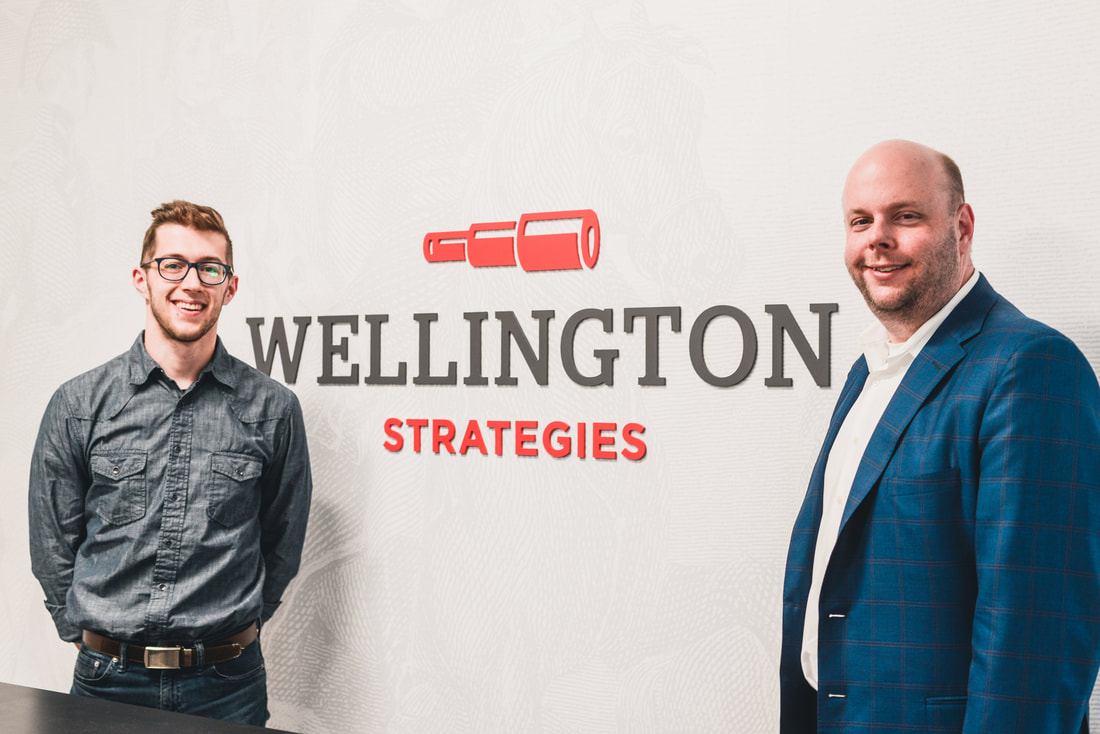
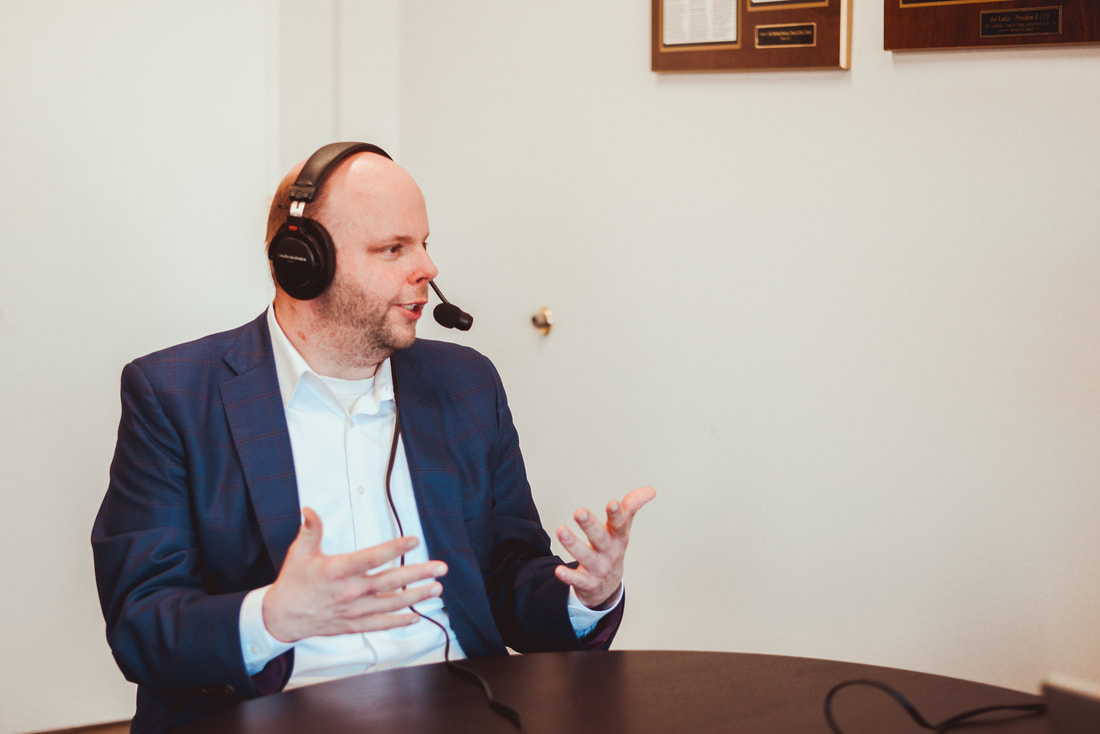
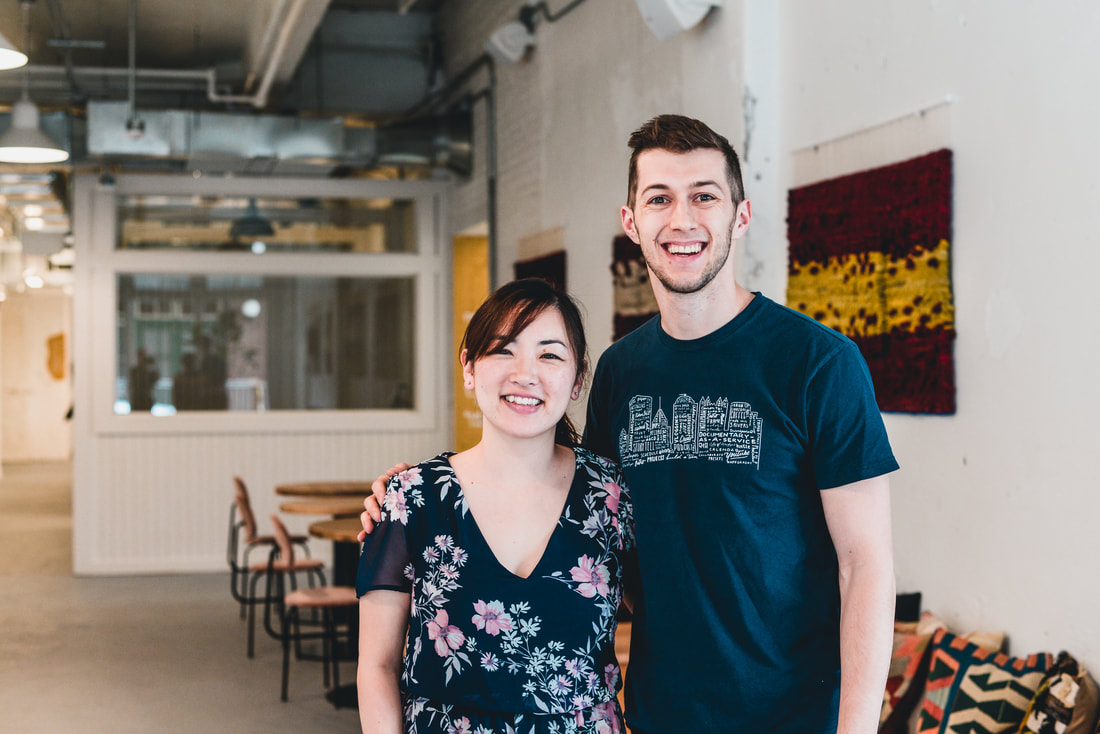
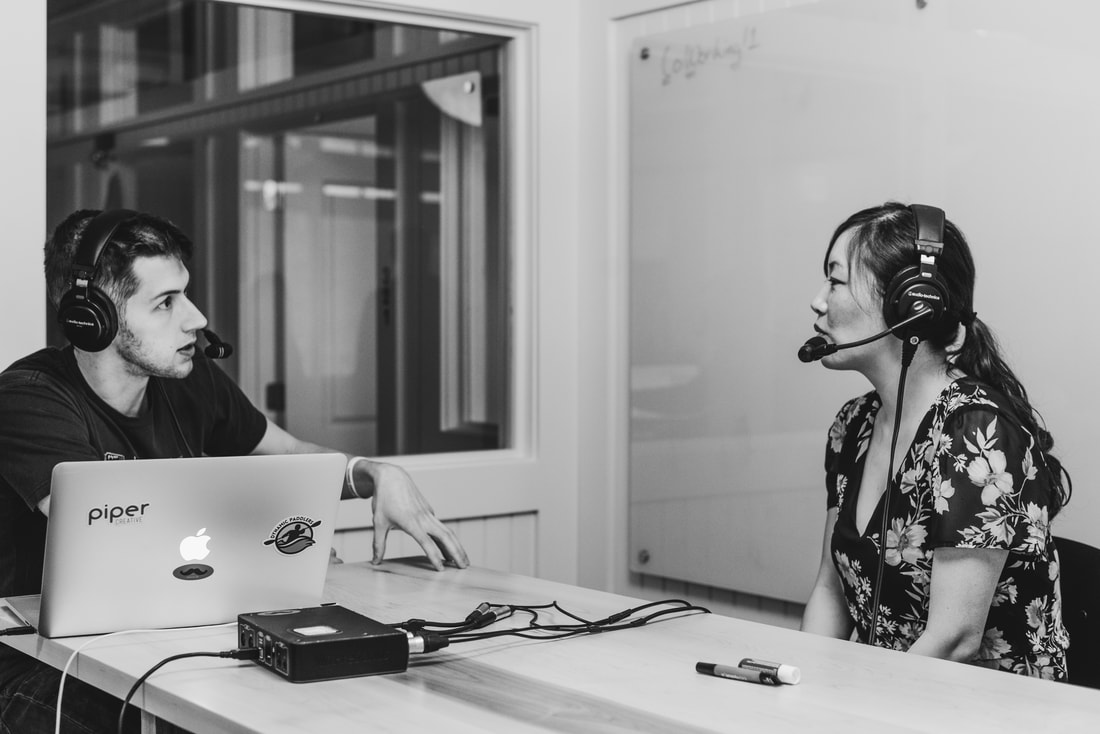
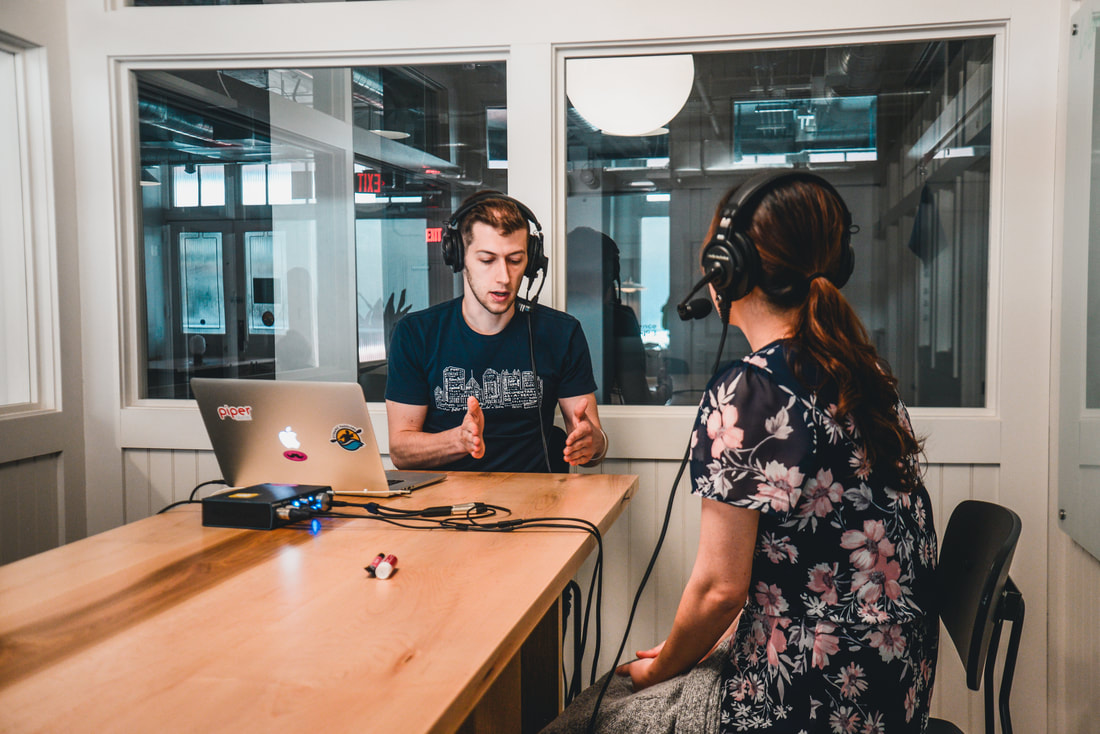
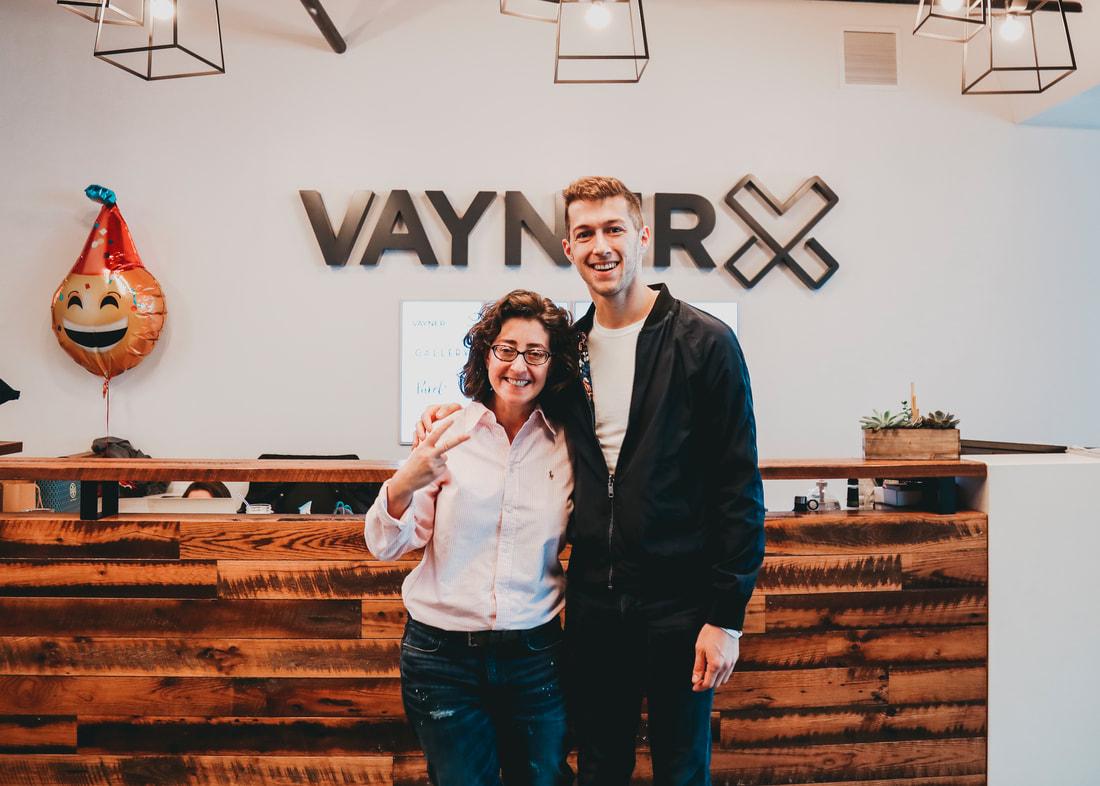
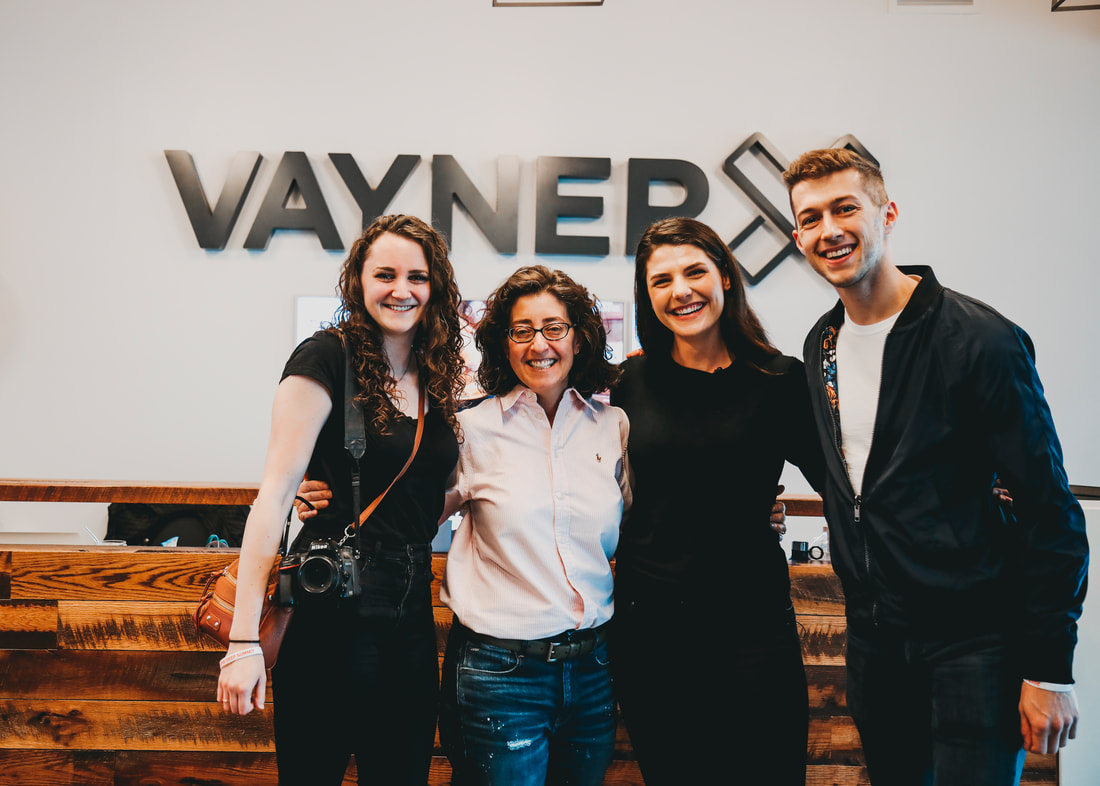
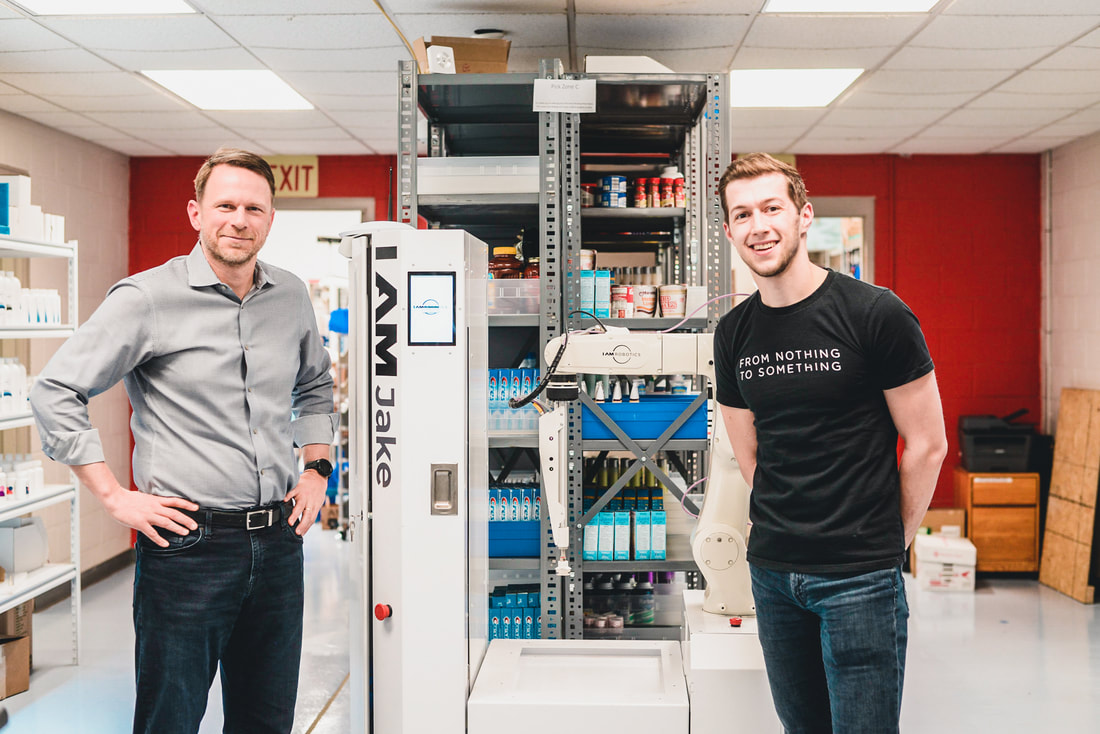
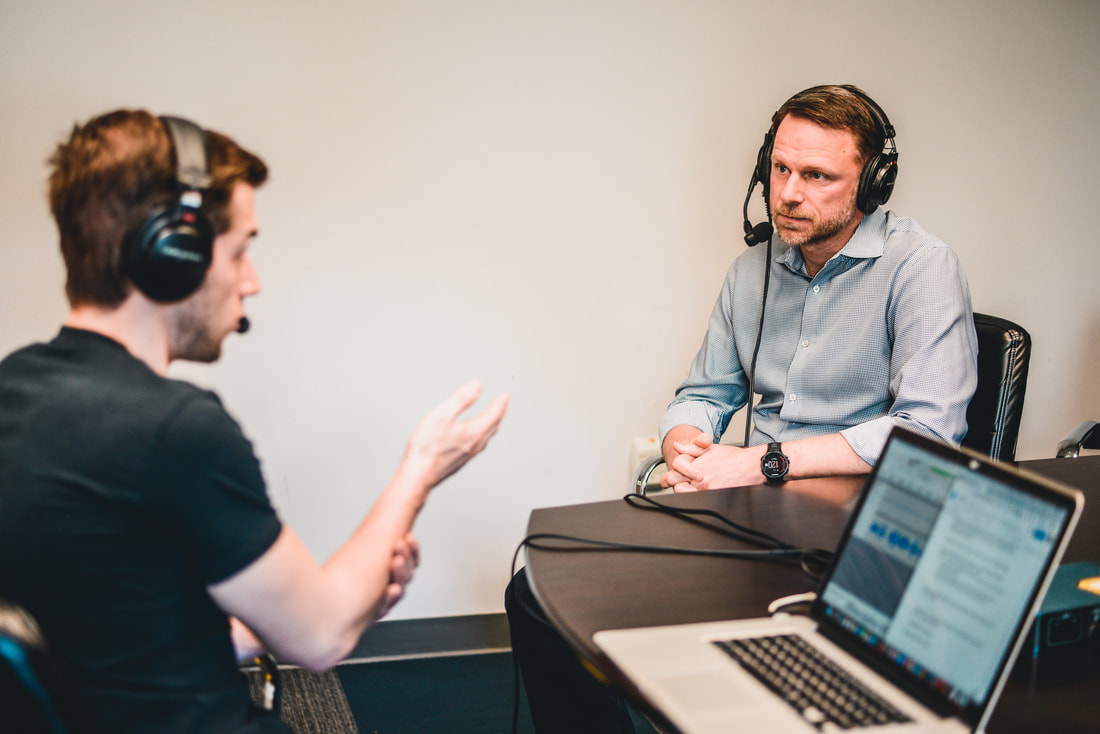
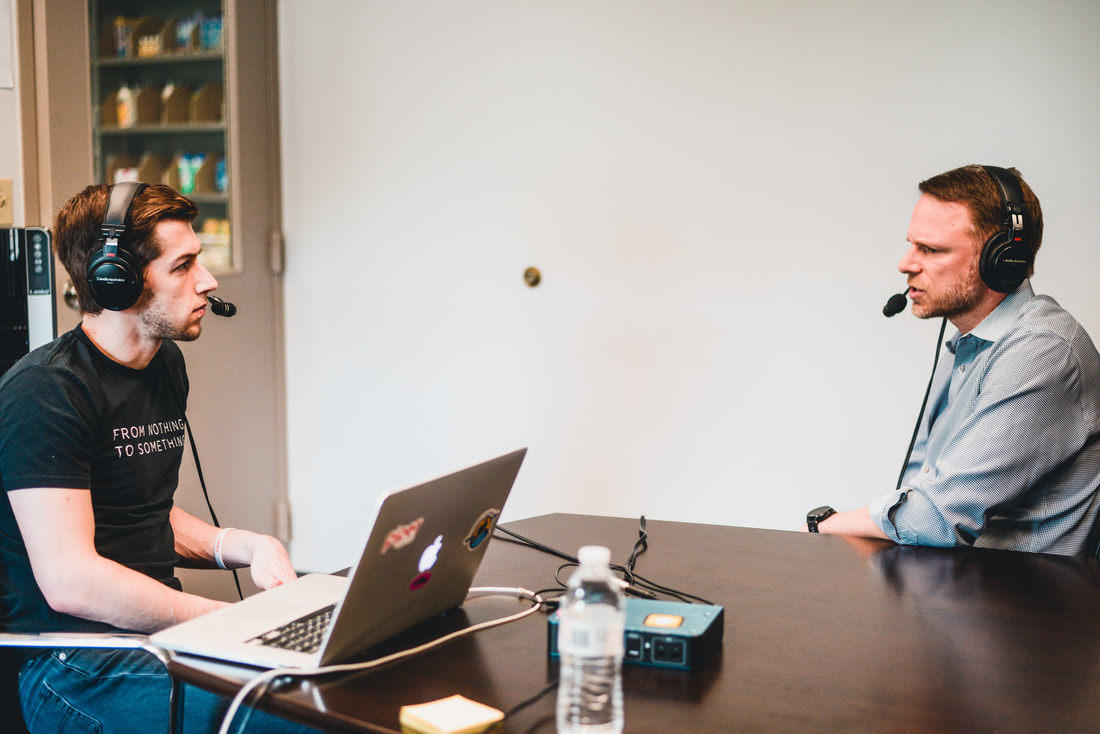

 RSS Feed
RSS Feed